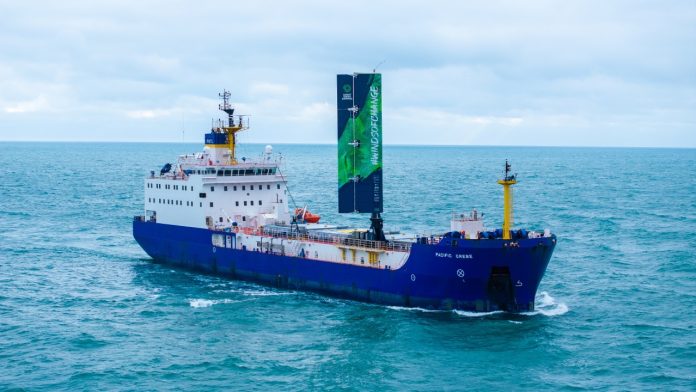Green tech firm chartered nuclear waste carrier for four weeks of scientifically rigorous testing of its wind propulsion system.Smart Green Shipping (SGS) has released the results from four weeks of sea trials of its FastRig wind-assisted propulsion system, claiming potential annual fuel savings of up to 40% in conjunction with its route optimisation tool.
In an industry first, SGS chartered the 4,916 dwt nuclear waste carrier Pacific Grebe to allow greater control of the vessel during testing, conducting its late 2024 sea trials in accordance with International Towing Tank Conference (ITTC) protocols. Part of the UK Government-funded Winds of Change project, the eight-week scope of the trials included dockside installation of a 20-metre scaled-down prototype of FastRig, an intensive four-week period of sea trials, followed by uninstallation of the wingsail system
During the sea trials, paired runs were carried out to test the performance of the stowable aluminium wingsail — an initial run with the sails feathered for minimum wind effect, and a second with the sails angled for maximum thrust.
Engineering design firm Houlder carried out independent measurement and analysis for each run, measuring the average ship speed through the water, delivered power on the prop shafts as well as wind direction and speed. Comparing the data allowed Houlder to determine the change in speed and delivered power between runs where the wing was effectively switched off, and the paired run with the wing switched on. Total power savings were also calculated from the data.

